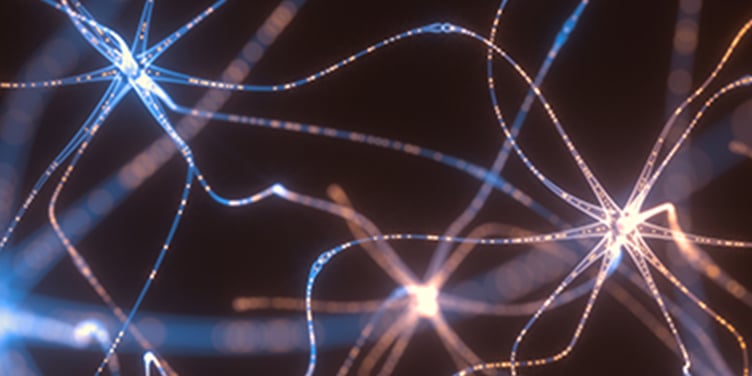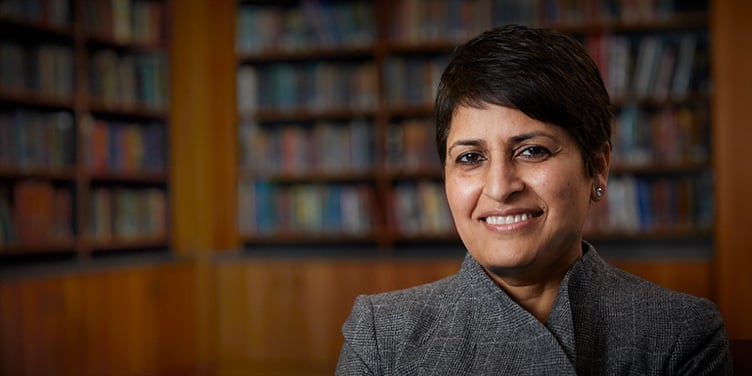Alzheimer's Disease

Overview
Alzheimer's disease is a degenerative disorder of the brain and one of several conditions that cause dementia, a progressive decline of mental functions resulting in memory loss and confusion. About 4 million Americans have the disease and it's estimated that Alzheimer's accounts for 50 to 70 percent of all cases of dementia.
The cause of Alzheimer's is unknown but doctors are making progress in understanding and diagnosing the disease, and developing drug treatments that may slow the decline. Researchers are investigating what happens to brain cells in people with Alzheimer's disease and what genes are associated with the disorder. Most researchers believe that the cause may be a complex set of factors, including genetics, age and a person's risk for vascular diseases such as high cholesterol and blood pressure.
The illness was first described in 1906 by a German doctor named Alois Alzheimer. Symptoms include a gradual loss of memory, problems with reasoning or judgment, disorientation, difficulty in learning, loss of language skills and a decline in the ability to perform routine tasks. Patients also may undergo changes in behavior, experiencing agitation, anxiety and hallucinations.
The incidence of Alzheimer's disease, sometimes called AD, rises with age and typically develops after age 60. Men and women are equally at risk, but more women are affected since women have a longer average life span. About 30 percent of Alzheimer's patients have a family member with the disease.
The first symptom tends to be subtle memory lapses, especially for recent events or newly learned information. These memory lapses lead to more significant gaps and confusion. Eventually, the disease leads to severe brain damage that impairs the ability to complete everyday tasks as well as to reason, learn and imagine.
Our approach to Alzheimer's disease
UCSF is an international leader in Alzheimer's disease (AD) research and care. We offer advanced imaging techniques to identify specific dementia disorders, including the amyloid PET scan, which can reveal brain changes characteristic of AD. Our team of neurologists, neuropsychologists, geriatricians and other specialists works closely with patients, family members and referring providers to provide the best possible treatments.
Because caring for someone with AD can be challenging, we work to connect caregivers as well as patients with a network of support services.
Awards & recognition
-

Among the top hospitals in the nation
-

Best in California and No. 2 in the nation for neurology & neurosurgery
Signs & symptoms
Symptoms of Alzheimer's disease include:
- Loss of abstract thinking. Someone with Alzheimer's disease may lose the ability to draw conclusions and solve problems. It may become difficult to balance a checkbook, for example, because the patient has forgotten what to do with the numbers.
- Disorientation. People with Alzheimer's disease can become lost on the street where they live, forget where they are and how they got there, and not know how to get back home.
- Lack of initiative. A person with the disease may become passive or unmotivated, sitting in front of the television for hours, sleeping more than usual and not pursuing his or her usual activities.
- Language problems. People with Alzheimer's disease often forget simple words or substitute words with inappropriate ones. An Alzheimer's patient who can't find his or her toothbrush may ask for "that thing for my mouth."
- Misplacing items. We're all prone to misplacing a wallet or key from time to time, but a person with Alzheimer's will put things in unusual places, such as an iron in the freezer or a wristwatch in the sugar bowl.
- Mood swings. Rapid mood swings — from calm to tears to anger — for no apparent reason is another common symptom.
- Personality changes. Personalities tend to change with age, but a person with Alzheimer's disease may have a severe personality change, becoming extremely confused, suspicious, fearful or dependent on a family member.
- Poor judgment. A loss of judgment is a common symptom. A patient may dress without regard to the weather, wearing several shirts or blouses on a warm day or very little clothing in cold weather. Others may give away large amounts of money to telemarketers or pay for home repairs or products they don't need.
Diagnosis
There is no single diagnostic test that can diagnose Alzheimer's disease. The process involves several tests and may take more than a day. These tests make it possible to diagnosis Alzheimer's with an accuracy of about 90 percent.
There are two abnormal structures in the brain associated with Alzheimer's disease — amyloid plaques and neurofibrillary tangles:
- Amyloid plaques. Amyloid plaques are sticky clumps or patches of protein surrounded by the debris of dying nerve cells in the brain.
- Neurofibrillary tangles. These are the damaged remains of protein called tau, which are required for normal brain function. In Alzheimer's, threads of tau protein become twisted, which researchers believe may damage neurons and cause them to die.
Research has provided clues about why the neuron cells die, but scientists have not identified the role plaques and tangles play in the disease and if they're the key factors.
Evaluation
At the UCSF Memory and Aging Center, an assessment will involve neurologists, radiologists, pharmacists, nurses and other health professionals. The evaluation may include a series of tests to measure memory, reasoning, vision-motor coordination and language skills. In addition, the evaluation may include:
- Brain scans. These tests will be performed to detect other possible causes of dementia such as stroke.
- Interviews. An interview with the patient and another person close to the patient, such as a relative, spouse or close friend who can provide examples of memory loss and functional decline.
- Laboratory tests. Lab tests, such as blood and urine tests, may provide information about problems other than Alzheimer's that could cause dementia.
- Medical history. Information about mental or physical conditions, prescription and nonprescription drug use, and family medical history will be gathered.
- Mental status. An evaluation will be conducted to assess sense of time and place; ability to remember, understand and communicate; and ability to do simple math problems.
- Physical exam. The patient's nutritional status, blood pressure and pulse will be assessed. Tests of sensation, balance and other functions of the nervous system also will be conducted.
- Psychiatric evaluation. An assessment of mood and other emotional factors that could cause dementia-like symptoms or may accompany Alzheimer's disease will be performed.
Treatments
Several medications are approved to manage the disease or slow the rate of decline. Some patients improve with medication and experience a temporary improvement soon after taking medication, but the period of improvement and stability varies. Despite treatment, it appears that Alzheimer's disease progresses in the long term.
In addition to drugs, an aerobic and weight-bearing exercise regimen may increase energy levels, reduce apathy and improve the overall sense of well-being. Since lack of motivation can be a problem, a personal trainer can be helpful to ensure participation in an exercise program.
One treatment that holds promise for the future is a vaccine that targets the beta-amyloid protein. Research on the vaccine in mice has been encouraging. Studies involving humans are in the early stages.
Health care professionals, with increasingly sensitive diagnostic skills, are using advanced imaging and medical technology to identify specific dementia disorders. This improves and expands the options for treatment.
A reversible form of dementia is detected in 10 to 20 percent of suspected Alzheimer's disease cases. These conditions are most often caused by electrolyte imbalances, thyroid disorders, trauma to the head, vitamin deficiencies, psychiatric conditions such as severe depression, medications such as Valium, or alcohol and drug abuse.
Caring for someone with Alzheimer's disease can be physically and emotionally challenging. Often, the caregiver assumes tasks such as household finances and cooking that were previously shared or the responsibility of the patient. Progressive loss of memory can impair recognition of family members, which leads to emotional detachment and separation.
A wide range of support services are available for dementia patients and their caregivers.
UCSF Health medical specialists have reviewed this information. It is for educational purposes only and is not intended to replace the advice of your doctor or other health care provider. We encourage you to discuss any questions or concerns you may have with your provider.













